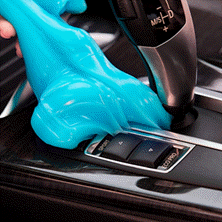staff@slashgear.com (Monday Goma)
2025-01-27 17:15:00
www.slashgear.com
Founded in 1948, Honda is one of the most popular car brands in the world. In its more than seven decades of existence, the Japanese automaker has made some really successful individual cars that appealed as much for their exceptionally terrific performance as for their aesthetically pleasing design. The second-generation NSX, for instance, has a twin-turbo V6 that provides up to 573 horsepower and 476 lb-ft of torque in stock form, with a 0-60 mph sprint time of 2.8 seconds and a 191-mph top speed.
Advertisement
Like any automaker, however, Honda has also had car models that were unloved by consumers for various reasons, ranging from their unusual or unappealing designs to their severely underpowered engines, frequent mechanical problems, poor build quality, or even their failure to live up to the expectations they raised. While people are often divided when it comes to a car’s reliability or looks, consumers mostly seem aligned in their opinions of the Honda car models in this list.
Honda Civic (2001–05)
The Honda Civic is perhaps one of the most recognizable nameplates ever. That reputation is helped by its affordable price tag, consistent practicality, usually attractive design, engaging handling, excellent performance, great fuel economy, and strong reliability record. However, it has also produced less successful models over the years. The seventh-generation model, in particular, is the most hated of all Honda Civic generations. The compact car often gets a bad rap for a range of issues, including its very problematic automatic transmission, which drivers complained would fail prematurely.
Advertisement
Of the over 2,000 people who took to CarComplaints to express dissatisfaction with the 2001 Honda Civic, 899 cited issues with the transmission (as of this writing). By far, the most common complaint pertains to transmission failure, with a whopping 682 (out of 899) mentioning this problem. Other major transmission concerns relate to the transmission slipping, failing to engage, and popping out of gear. Seventh-gen Civics are also said to be susceptible to head gasket failure, have the infamously faulty Takata airbags that might explode upon deployment, as well as poor aftermarket support. Because of these problems, seventh-gen Civic models like the 2001 Honda Civic are widely considered to be some of the Honda models to avoid at all costs if you’re in the market for a trouble-free vehicle.
Advertisement
Transmission, support, and reliability-related issues aside, Honda’s switch from the much-celebrated double wishbone front suspension used on the sixth-general models to McPherson struts for the seventh generation Civic also didn’t sit well with consumers who felt it was a definite step-down from the more superior double wishbone system and hence hated the seventh-gen Civic for it.
Honda Element
The Element is another Honda car that gets a lot of hate, mainly for its divisive styling. The compact crossover SUV debuted for the 2003 model year and was based on Honda’s Global Compact Platform, which also underpins the second-generation Honda CR-V, Civic, and RSX. However, unlike the CR-V which had a rounded and aerodynamic shape that was typical of crossovers at the time, the Honda Element featured an unconventional boxy exterior styling that some think was downright ugly. Poor fuel economy, sluggish acceleration, road and wind noise were also areas of concern.
Advertisement
But not everyone had negative feelings toward the Honda Element. If not the styling, owners (especially the outdoorsy types) were happy with some aspects of the crossover SUV, including its reliability, versatile interior, ample headroom, and generous cargo space. With all seats in use, the Honda Element delivers 25.1 cubic feet of cargo room; when the rear seats are folded down, cargo space is maxed out at 74.6 cubes. Honda sold around 325,000 units of the Element from the 2003 through 2011 model years across a single generation.
Honda Crosstour
The Crosstour was intended to be sort of a hatchback (or wagon) variant of the Honda Accord sedan. Sadly, Honda’s somewhat ambiguous goal for the model reflected in its design: a frustrating mishmash of body styles — hatchback, crossover, station wagon — you name it. And people hated it for that. However, this is not the only reason for the disdain. Early Crosstour models were also disliked in some quarters for their slow acceleration times. The 2010 Crosstour, for example, had a 3.5-liter i-VTEC V6 engine that generated 271 horsepower and 254 lb-ft of torque, which was impressive quite alright.
Advertisement
Sadly, even with all that power, it does take a rather leisurely 7.2 seconds to go from 0-60 mph, according to Zeroto60times – something else people were frustrated about. Despite lacking in pace and identity, however, the Honda Crosstour gets a reasonable amount of love in certain quarters, as its unique styling is a hit with some people, even if awkward. The Crosstour was also appreciated for its roomy interior, available all-wheel drive system, and possessing the Accord’s usual fun driving dynamics.
Honda CR-Z
The two-seat CR-Z is yet another Honda model that did not have quite the intended impact the Japanese automaker would have hoped for. Fun driving dynamics and keen handling were a key promise in the creation of the sport hybrid coupe, which was planned as a cross between the well-handling Honda CRX and Insight hybrid. But to the disappointment of many potential buyers, the production-spec car was unimpressive and unsurprisingly brought with it a torrent of negative reception when it launched in 2011.
Advertisement
The 2011 CR-Z came with a 1.5-liter four-cylinder engine paired with an electric motor paired and a nickel-metal hydride battery pack that generated a combined 122 hp and 128 lb-ft of torque (the gas engine made 112 hp and 107 lb-ft of torque on its own). That output made its way to the front wheels via either a standard six-speed manual transmission or an available continuously variable transmission (CVT) that lowers torque by 5 lb-ft. For the 2013 model year, Honda offered a slightly more robust battery pack that increased total output to 130 hp and 140 lb-ft of torque.
Still, it did very little to change the impression of people, who already considered it dull and underpowered. The CR-Z was also criticized for its poor rearward visibility, road noise intrudes, and average safety scores. As a result, those who wanted performance, practicality, or better visibility had to look elsewhere, and this culminated in low consumer interest in the CR-Z, which, in turn, forced Honda to discontinue the model in 2016.
Advertisement

PULIDIKI Car Cleaning Gel Universal Detailing Kit
Make car cleaning effortless with the PULIDIKI Car Cleaning Gel Universal Detailing Kit, a simple yet effective solution for keeping your vehicle spotless. With over 89,741 ratings and an impressive 4.1-star average, it’s no wonder this kit is a highly rated Amazon Best Seller.
Loved by over 40,000 buyers in just the past month, it’s an unbeatable deal for only $6.99. Perfect for cleaning those hard-to-reach areas, this detailing gel is a must-have for car enthusiasts. Order now for just $6.99 at Amazon!
Help Power Techcratic’s Future – Scan To Support
If Techcratic’s content and insights have helped you, consider giving back by supporting the platform with crypto. Every contribution makes a difference, whether it’s for high-quality content, server maintenance, or future updates. Techcratic is constantly evolving, and your support helps drive that progress.
As a solo operator who wears all the hats, creating content, managing the tech, and running the site, your support allows me to stay focused on delivering valuable resources. Your support keeps everything running smoothly and enables me to continue creating the content you love. I’m deeply grateful for your support, it truly means the world to me! Thank you!
|
BITCOIN
bc1qlszw7elx2qahjwvaryh0tkgg8y68enw30gpvge Scan the QR code with your crypto wallet app |
|
DOGECOIN
D64GwvvYQxFXYyan3oQCrmWfidf6T3JpBA Scan the QR code with your crypto wallet app |
|
ETHEREUM
0xe9BC980DF3d985730dA827996B43E4A62CCBAA7a Scan the QR code with your crypto wallet app |
Please read the Privacy and Security Disclaimer on how Techcratic handles your support.
Disclaimer: As an Amazon Associate, Techcratic may earn from qualifying purchases.













































































